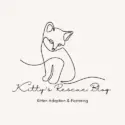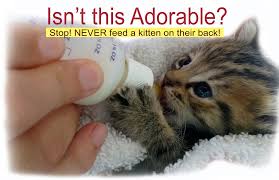Kittens are delicate creatures, especially when they are bottle babies. Aspiration pneumonia is a serious condition that can affect these vulnerable little ones. It occurs when a kitten inhales liquid or foreign material into their lungs, leading to inflammation and infection. Understanding the symptoms, treatment, and prevention of kitten aspiration pneumonia is crucial for ensuring the health and well-being of these tiny felines.
Symptoms
Recognizing the symptoms of kitten aspiration pneumonia is essential for early detection and treatment. Common signs include coughing, wheezing, difficulty breathing, lethargy, and loss of appetite. If you notice any of these symptoms in your bottle baby, it is important to seek veterinary care immediately. Delaying treatment can lead to serious complications and even death.
Treatment
Treatment for kitten aspiration pneumonia typically involves supportive care, such as oxygen therapy, antibiotics, and nebulization. In severe cases, hospitalization may be necessary to provide round-the-clock monitoring and treatment. It is important to follow your veterinarian’s recommendations closely to ensure the best possible outcome for your kitten. With prompt and appropriate treatment, most kittens can recover from aspiration pneumonia and go on to live happy, healthy lives.
Prevention
Preventing kitten aspiration pneumonia is key to keeping your bottle baby safe and healthy. When feeding your kitten, make sure to hold them in an upright position to reduce the risk of aspiration. Use a slow-flow nipple to prevent them from taking in too much milk too quickly. Additionally, be cautious when administering medications or fluids to your kitten to avoid accidental aspiration. By taking these precautions, you can help protect your kitten from this potentially life-threatening condition.
Conclusion
Kitten aspiration pneumonia is a serious threat to bottle babies, but with early detection, prompt treatment, and preventive measures, it can be managed effectively. By staying vigilant and proactive in caring for your kitten, you can help ensure their health and well-being. Remember to always consult with your veterinarian if you have any concerns about your kitten’s respiratory health. With proper care and attention, your bottle baby can grow up to be a happy and healthy cat.
By following these guidelines, you can help protect your bottle baby from the dangers of aspiration pneumonia and ensure their health and well-being. Stay informed, stay vigilant, and always prioritize your kitten’s respiratory health.

